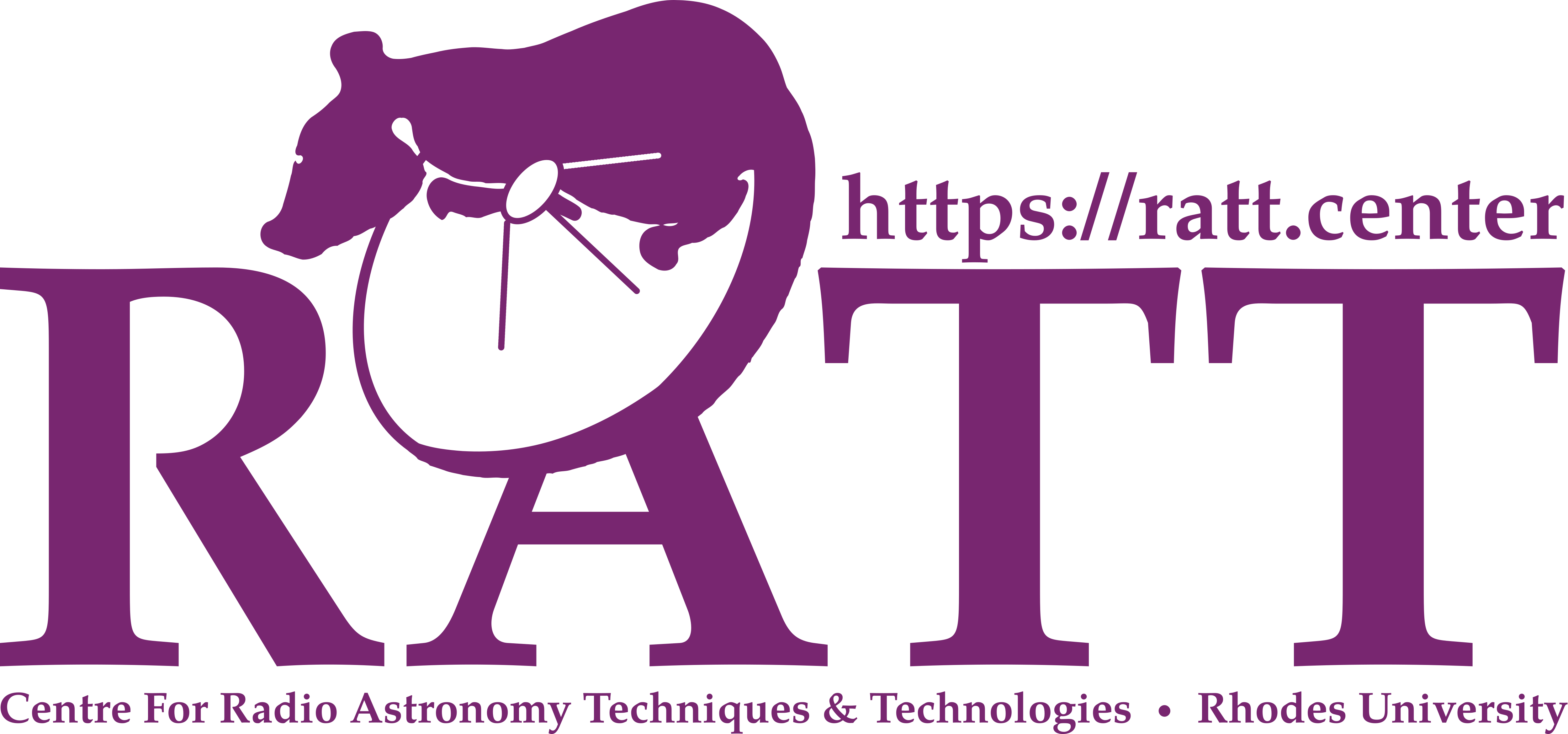Closing date for applications: 1 October 2018.
Rhodes University has established the Centre for Radio Astronomy Techniques and Technologies, based around the SKA Research Chair in RATT, with the aim of furthering research into data processing algorithms, novel calibration & imaging techniques, and innovative observational methods. We have extensive collaborations with leading international radio astronomy groups, we are closely involved with South African Radio Astronomy Observatory (SARAO) and the MeerKAT, C-BASS and HERA telescopes in the Karoo, and we expect to play a large role in the design and development of the Square Kilometre Array. Our activities include algorithm design, software implementation, development of mathematical methods and frameworks for use in radio astronomy, and processing of observational data from existing radio telescopes. We have research projects of various scope and level available to suit students with a variety of aptitudes, from low-level software and algorithm work, to high-level mathematics and physics. Applicants should have a strong academic record in one or preferably more of the following subjects: astronomy, computing science, mathematics and/or applied mathematics, physics, statistics, signal processing.
Please see this webpage for more information on potential research areas and projects. Bursaries are now available for 2019. Funding levels are linked to SARAO bursary levels. As a guideline, for 2018 these were:
- Honours (1 year): R131 000
- Masters (2 years duration): R119 000 p.a., plus R24 000 one-off equipment grant, plus R26 500 p.a. travel grant
- Doctoral (3 years duration): R136 000 p.a., plus R36 000 one-off equipment grant, plus R32 000 p.a. travel grant
The bursaries are renewable on an annual basis subject to satisfactory academic progress.
Priority for funding will be given to South African citizens and permanent residents, followed by candidates from the SKA Africa partner countries (Botswana, Ghana, Kenya, Madagascar, Mauritius, Mozambique, Namibia, Zambia). Candidates from the rest of the world will be considered on an exceptional basis only.
Applicants should prepare the following documents: a motivational letter (including the applicant’s background and intended subject of study), detailed Curriculum Vitae, copies of all academic transcripts, and details of three referees.
Applications should be submitted by e-mail to Prof O. Smirnov, o.smirnov@ru.ac.za. Shortlisted applicants will be asked to have their referees e-mail their reference letters to the same address at a later date.
